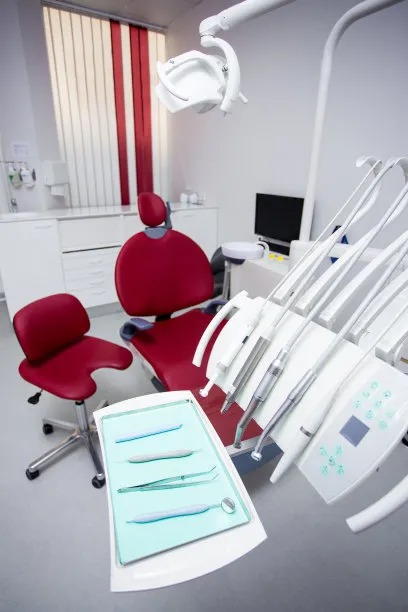Summary: Extracting a tooth can be a crucial step in maintaining oral health, and seeking professional guidance is paramount. This article explores four significant aspects of the importance of expert help when facing tooth extraction. These aspects include understanding the risks associated with tooth extraction, the necessity of a proper diagnosis, the benefits of professional care during and after the procedure, and the long-term implications of extraction on oral health. Overall, the objective is to emphasize that a well-informed and professional approach to tooth extraction leads to better health outcomes and ideally enhances ones overall quality of life.
1. Understanding Risks of Tooth Extraction

Tooth extraction is not without its risks, which can vary depending on the individual and the circumstances surrounding the tooths condition. One of the primary concerns is infection, which can arise from improper techniques or post-operative neglect. A professional dentist is equipped to manage these risks effectively, ensuring that the extraction site is clean and that proper aftercare is communicated clearly to the patient.
Another risk involves damage to adjacent teeth and tissues during the extraction process. A skilled dentist utilizes advanced tools and techniques to minimize trauma during the procedure. Therefore, having a professional perform the extraction not only reduces risks but can also facilitate a smoother, more comfortable experience for the patient.
Furthermore, there are systemic health risks linked to tooth extraction, particularly for individuals with underlying health conditions. Professionals assess these risks before proceeding and tailor their approach to suit the patients overall health profile, ensuring safety throughout the process.
2. The Necessity of Proper Diagnosis
A proper diagnosis is critical before any tooth extraction. A qualified dentist will conduct a thorough examination, often incorporating X-rays, to determine the complexity of the extraction and identify potential complications. This detailed assessment allows the dentist to decide if extraction is the best option or if alternative treatments could preserve the tooth.
Additionally, understanding the underlying causes of tooth problems is vital for future oral health. For instance, if extractions are necessary due to decay or periodontal disease, a comprehensive treatment plan must be developed to prevent further issues. Professional guidance ensures a holistic approach is taken, addressing not just the extraction but also the overall dental health.
Moreover, the diagnosis can provide insights into the patients dental history and habits that may contribute to the problem. Identifying these factors requires a trained eye and experience, which are hallmarks of a dental professionals evaluation.
3. Benefits of Professional Care During and After Extraction
Receiving professional care during a tooth extraction can significantly enhance the patients experience. A skilled dentist can administer appropriate anesthesia, ensuring that the procedure is as pain-free as possible. Their expertise also allows for the efficient removal of the tooth, which minimizes discomfort and potential complications.
Post-extraction care is just as crucial as the procedure itself. Dentists provide specific instructions on how to care for the extraction site, including how to manage pain and signs of complications such as bleeding or infection. This guidance is essential for a swift recovery and helps the patient avoid unnecessary discomfort.
Furthermore, professional follow-up appointments ensure that the healing process is monitored. Dentists can identify any issues early on, thereby preventing more serious problems from developing in the future. Such vigilant care significantly contributes to optimal oral health after tooth extraction.
4. Long-term Implications for Oral Health
The decision to extract a tooth should always consider the long-term implications for oral health. In some cases, an extraction could lead to shifting of surrounding teeth, which can result in bite problems and further dental issues. Professional guidance helps in creating strategies to mitigate these consequences, such as recommending braces or other corrective treatments following the extraction.
Moreover, missing teeth can affect speech and eating habits, which can impact overall quality of life. Dentists can advise on excellent restorative options post-extraction, such as dental implants or bridges, to fill in gaps and maintain functionality. Such expert recommendations are essential in maintaining a healthy and attractive smile.
Lastly, education on maintaining good oral hygiene post-extraction is paramount to preserve the remaining teeth and gums. A dentist can provide tailored advice on oral care that takes into account the specific needs and situations of the patient, thus promoting long-term health.
Summary:
In this article, we explored the significance of seeking professional guidance during the tooth extraction process. Emphasizing the understanding of risks, the necessity of proper diagnosis, the benefits of professional care during and after the procedure, and the long-term oral health implications, it’s clear that professional involvement leads to healthier outcomes.
In summary, teeth are vital to overall health, and professional guidance in extraction processes serves as a safeguard. Proper care and consultation can make a world of difference in ensuring a healthy, pain-free smile for years to come.
This article is compiled by Vickong Dental and the content is for reference only.
Vickong Dental
Vickong Dental is a large medical group established in Hong Kong in 2008 by professors from well-known medical universities in Guangdong and Hong Kong, as well as medical doctors from key national '985' universities (including Master's supervisors and senior professors). The chain of branches brings together expert dentists with PhDs and Master's degrees from Hong Kong and Mainland China, committed to providing high-quality dental treatment.
"Vickong Dental Practices the University Motto of 'Healing and Serving Society,' with a Stable Operation for Sixteen Years. It Has Been honored with Hong Kong Enterprise Leaders's Choice,' and is a Global Trusted Implant Center for the Nobel Implant System. Recommended by Hong Kong Metro Broadcast and Guangdong Television, it Serves Customers from Over Thirty Countries and Regions, Gaining the Trust and Favor of Citizens from the Guangdong-Hong Kong-Macau Greater Bay Area and Surrounding Cities.

Thousands of customers' unanimous praise
The most recognized and highly recommended dental service by customers in the Guangdong-Hong Kong-Macau Greater Bay Area
We Ensure You Receive Detailed Care and Attention Here
Hong Kong standards, Shenzhen prices, Your Trusted English-speaking dentists

Vickong Dental Medical-Grade Instrument Disinfection Process
Vickong Dental Medical-Grade Instrument Disinfection Process

Vickong Dental Chain: A Warm and Comfortable Environment for Treatment






Appointment Hours

Q&A
Why choose Vickong Dental?
Vickong Dental practices the university motto 「Medicine to Benefit Society」, with each branch bringing together highly qualified dentists with doctoral and master’s degrees from Hong Kong and the Mainland, and has maintained seventeen years of steady operation。Recipient of 「2024 Hong Kong Enterprise Leaders Brand」, 「2025 Hong Kong Enterprise Leaders Brand」, a Nobel Biocare Global Trusted Implant Center, and a brand recommended by Metro Radio Hong Kong and Guangdong TV。
To date, we have served customers from more than thirty countries and regions,earning exceptionally high word-of-mouth recognition and trusted recommendations from residents across the Guangdong-Hong Kong-Macao Greater Bay Area and surrounding cities
We have eight major branches in Zhuhai、Shenzhen,and a consultation and service assurance center in Hong Kong,so you can book a free consultation at any time for any questions,which is very reassuring.
If I do not accept the quotation after the CT scan, will I be charged??
No! As long as the actual treatment has not started, you will not be charged any fees.
Will there be any additional charges during the treatment process?
No, there won’t be any additional charges. Before treatment begins, we will clearly explain the treatment plan and its corresponding fees. Only after the patient agrees and signs the consent form will we proceed with the dental service.
Can I pay in Hong Kong dollars?
Yes. Vickong Dental accepts payment in Hong Kong dollars. The amount will be converted based on the exchange rate of the day, and the applicable rate will be clearly communicated to you in advance.
Can I reschedule my appointment at any time?
Yes. Please contact us via **WeChat** or **WhatsApp** as early as possible, providing your original appointment time and details, along with your preferred new date and time slot for rescheduling.













